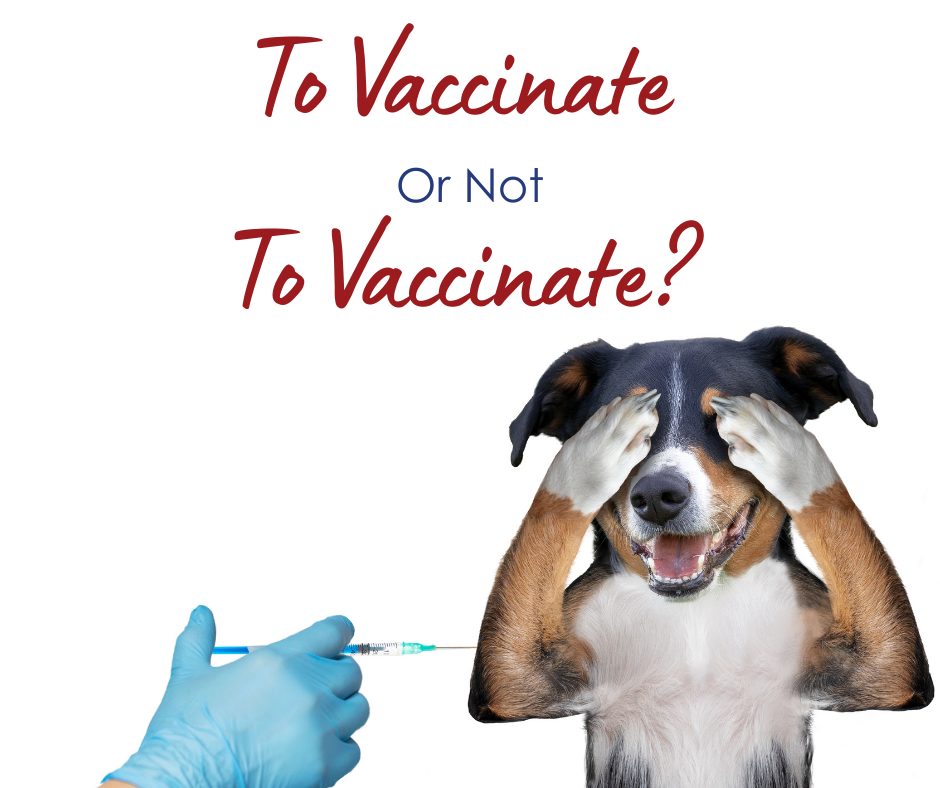When it comes to your pet’s wellness, there are many different aspects of care that contribute to overall well-being. Food choices, grooming habits, exercise schedules, behavior training, playtime, and more all come to mind when we think about what makes our pets healthy and happy. Although there are numerous ways to meet needs of your pets, when it comes to preventing diseases like parvovirus, distemper, rabies, and other diseases…our options are basically summed up into one question: to vaccinate, or not to vaccinate?
While this question might seem like an easy one to answer for some pet owners, many wonder if vaccines are really necessary or helpful. Everyone wants their beloved dog or cat to be healthy and happy, but what they might not realize is skipping out on core vaccinations could potentially cost your pet their life. Understanding what a vaccination can and cannot do for your furry family member will better prepare you to make the best health decisions for your pet.
When your dog or cat receives a vaccination, the vaccine encourages your pet’s immune system to develop disease-specific antibodies that target and attack invading viruses and bacteria. These antibodies remain in your pet’s immune system and are able to recognize and protect your pet should they become exposed. Vaccines equip your pet’s immune system with the capability to defend themselves quickly against vaccine-specific diseases that can cause severe illness and even death. It should be noted that vaccinations are carefully studied and regulated by The Veterinary Biologics Program of the USDA’s Animal and Plant Health Inspection Service (APHIS) “to ensure that the veterinary biologics [like vaccinations] available for the diagnosis, prevention, and treatment of animal diseases are pure, safe, potent, and effective.” Carefully studied and regulated vaccinations are often the most effective, safe, and important method of preventing diseases our pets can be exposed to everyday.
It might be hard to believe that a vaccination could play such a significant role in your furry friend’s health, but they do. Many of the diseases pets are vaccinated against can be life-threatening, quickly deteriorating your pet’s health and spreading rapidly to other pets and even humans. Most pets who are current on core vaccinations are able to fight off viruses and bacteria before symptoms develop, but vaccines can’t guarantee 100% protection. However, vaccinated pets who develop symptoms tend to have a quicker recovery and less-severe symptoms in comparison with an unvaccinated pet. Without a strong immune system and disease-specific immunity gained from core vaccines, your pet is at risk even if they are never around another pet or live their lives entirely at home.
For a better understanding of how your pet is at risk even if they never interact with another animal, let’s take a look at Canine Parvovirus. With the ability to kill your dog or puppy in as little as 48-72 hours after symptoms develop, this virus is one of the most difficult viruses to kill and it can survive without a host in nearly any environment, sometimes for years. The virus spreads rapidly and is highly contagious for unvaccinated dogs, especially puppies. It is largely present in the environment, enabling dogs to become infected even if there are no other dogs around. Parvovirus can survive extreme temperatures and conditions and most household cleaners are ineffective at killing the virus. The extreme hardiness of the virus allows its survival virtually anywhere: grass, puddles, soil, snow, sidewalks, mud, etc. You can even bring the virus home to your dog on shoes and clothing, making it impossible to prevent your dog from being exposed at some point in their life. Since we can’t control the virus that lives nearly everywhere, the best thing we can do is to properly vaccinate our dogs and puppies to give them the best protection available against a virus that can quickly take their life.
While vaccinations aren’t the one-step, cure-all or guaranteed preventative we’d like them to be, they do significantly increase your pet’s immunity to certain diseases and lessen the chances of outbreaks. A copy of your pet’s vet record is typically required with most pet-related services including boarding facilities, dog parks, daycares, trainers, groomers, and even traveling with your pet. Some vaccinations are even required by law depending on where you live. You may be wondering why you need to bring a record of all vaccinations your pet has received just for him to get a bath or get his nails trimmed, but the reasoning behind this is an important one. Vaccinating your pet helps keep your pet, other pets, and even people better protected from dangerous diseases. If you aren’t sure what vaccines your dog or cat has received or they are an adult who hasn’t been vaccinated, it isn’t too late to protect them. Vaccines can still offer the same immunity benefits to adult dogs and cats when administered correctly. To learn what vaccines are recommended or required in your area and when they should be given, talk to your veterinarian to set up a schedule to get–and keep–your pet up to date. It might just save their life!
Roice-Hurst offers a Low-cost Vaccination clinic on Wednesday, 2-6pm. Please visit our website for more information and to schedule your appointment.

